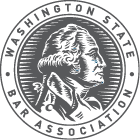Paths Mentorship Program FAQs
(Frequently Asked Questions)
Q. What are the goals of the Paths Mentorship Program?
A. The goals of the Program are manifold. Mentorship in the legal profession supports new and transitioning lawyers as they adjust to a career in law, promotes inclusion, and provides a means for mentees to develop professionally. Importantly, the Program was also created to help lawyers from historically marginalized or underrepresented backgrounds to enter, stay and thrive in the legal profession.
Mentors also benefit from mentoring. Mentors gain personal satisfaction from contributing to the profession by supporting the professional development of tax lawyers in the legal profession and promoting congeniality within our legal community.
Traditional Mentoring
Q. What is traditional mentoring?
A. Traditional mentoring pairs a mentor and mentee based on geographical location and/or specialty. The arrangement usually lasts one year during which time the mentor and mentee discuss pre-selected topics and complete activities together. These topics and activities are chosen and identified in a mentoring plan that the pair creates during their initial meeting, which is also referred to as the orientation. Typically, mentors and mentees meet at least once each month, either in person or virtually.
Q. How are mentors selected?
A. Any member of the Taxation Section who has been licensed to practice law for at least two years and is a member of the WSBA in good standing can be a mentor. Members interested in becoming a mentor should submit an application. Note that only mentors who are active members of the WSBA, in good standing, and admitted to the practice of law in the state of Washington for five or more years are eligible for CLE credit through the WSBA.
Q. I’m not a new lawyer. Can I still be a mentee?
A. While mentees are often newly admitted lawyers, law students, established lawyers interested in beginning a career in tax law, and lawyers currently working in a non-legal career can also benefit from a mentoring relationship. Therefore, law students and all members of the Taxation Section can be mentees in the Program. However, CLE credit is available to eligible mentors only if the mentee is also an active member of the WSBA. For that reason, CLE credit will not be available to a mentor if the mentee is a law student.
Q. How are mentors and mentees matched?
A. Mentors and mentees are primarily matched according to geographical location and area of practice. The Program Coordinator will also consider any preferences identified on the applications submitted by the mentor and mentee.
Q. Can a mentee choose his or her mentor?
A. Yes, mentees are encouraged to choose their own mentors. However, CLE credit will not be available if the mentor and mentee both work for the same employer, even if they otherwise meet eligibility requirements.
Q. How much time is a mentor expected to spend with the mentee?
A. There is no minimum amount of time that mentors and mentees are required to meet during the mentoring period. Mentors and mentees are encouraged to create a schedule and discuss availability during their initial meeting. It’s recommended that the mentoring pair meet at least one time each month and commit to a year-long relationship.
Q. Is any training required for mentors?
A. There is no requirement that mentors participate in formal training. However, the Tax Section provides mentors with resources to help prepare them for the Program.
Q. How do I apply?
A. Anyone interested in becoming a mentor or mentee can apply to the Program by completing an application and submitting it to the Program Coordinator. Applications are available through the Program’s website.
Q. What do I do if I have a problem with my mentor?
A. Mentors and mentees are encouraged to contact the Program Coordinator if a conflict arises between the mentor and mentee. If efforts to resolve the conflict are not successful, the mentee will have the option of being matched with another mentor.
Q. What if I’m going to be unavailable for a period of time?
A. Participants are encouraged to account for foreseeable periods of absence when developing a schedule at their initial meeting. Mentors and mentees should communicate with their counterpart as soon as they discover that they will not be available for a period of time during which a meeting was planned in the case of an unexpected absence.
Q. How long does the mentoring relationship last?
A. It is strongly recommended that mentors and mentees commit to a year-long relationship. Mentors and mentees are encouraged to discuss the duration of their arrangement at their first meeting and agree to the length of the mentorship term in their mentoring plan.
Q. What is the mentoring agreement, and why is it required?
A. The mentoring agreement is a form that defines the parameters of the mentoring relationship. Both the mentor and mentee sign the agreement at their initial meeting. It is one of the requirements for earning CLE credit. The agreement is available on the Program’s website.
Q. What is a mentoring plan, and how do I create one?
A. According to the Self-Directed Structured Mentoring Program Guide, the mentoring plan defines the learning curriculum to be carried out during the mentoring relationship. A template provided by the WSBA is available on the PMP’s website.
The mentoring plan template identifies activities under six categories: substantive law, ethics and professional responsibility, professional development, personal development and mental health, office management, and improving the legal system. Blank lines are included under each category for mentors and mentees to substitute or add activities that interest them from among the APR 11(f) approved subjects. The mentoring agreement can be amended during the mentoring term as needed.
Q. How is the mentoring plan monitored?
A. The mentor and the mentee are both responsible for ensuring that they follow the mentoring plan during their meetings. Mentoring time for which the mentor and mentee seek CLE credit must be spent covering topics that fall within the scope of APR 11(f). Activities listed in the mentoring agreement should be selected and designed to conform to this rule.
CLE Credit
Q. What are the requirements for earning CLE credit?
A. Generally, CLE credit is available for mentoring under APR 11 if the arrangement complies with the requirements set out in the Self-Directed Structured Mentoring Program Guide, which was approved by the MCLE Board.
- To be eligible for CLE credit, a mentor must be an active member of the WSBA, in good standing, and admitted to the practice of law in the state of Washington for five or more years. Mentees are eligible for credit if they are active members of the WSBA.
- Mentors and mentees must attend an orientation, which is their initial meeting. During this meeting, the mentor and mentee review and sign the mentoring agreement, develop a mentoring plan, and discuss the terms of their relationship. The Tax Section provides mentors and mentees with an orientation guide to assist them, the mentoring agreement, and a mentoring plan template.
- Mentors and mentees meet periodically over the course of the mentoring term to complete the activities they selected in their mentoring plan.
- Finally, the mentor and mentee complete an evaluation, using the form provided on the Program’s website, which they then submit to the Program Coordinator.
Q. Do I have to attend an orientation to qualify for CLE credit?
A. Yes, an introductory orientation is required for mentors and mentees seeking CLE credit for the time they spend mentoring. The orientation is the initial meeting. It is strongly recommended that the mentor and mentee meet face-to-face (in person or electronic) for the orientation because their first meeting is the starting point of their relationship and the earliest opportunity for them to determine whether they are a good match. The Tax Section does not coordinate or attend the orientation, but it does provide participants with an orientation guide that mentors and mentees can use to facilitate their first meeting. The mentoring agreement and the mentoring plan must be completed during the orientation. Both the agreement and a template for the mentoring plan are available on the PMP website.
Q. Will I earn CLE credit for the orientation?
A. No, CLE credit is not available for the orientation.
Q. How do I claim CLE credit?
A. Eligible mentors and eligible mentees who attend an orientation, sign a mentoring agreement, complete a mentoring plan and submit an evaluation can apply to the WSBA for CLE credit. The PMP is not a structured mentoring plan, and therefore the Tax Section will not be coordinating CLE credit on the participants’ behalf.
To claim credit, the mentor and mentee must individually apply for credit via mywsba.org. Each participant must submit a copy of the completed mentoring agreement, mentoring plan and evaluation at the time that he or she applies for CLE credit.
Q. Can I get CLE credit if I’m eligible but my mentee is not eligible?
A. No, CLE credit for mentoring is only available to mentors and mentees if both participants meet the eligibility requirements. A mentee is considered eligible if the mentee is an active member of the WSBA.
Other Mentoring Plans
Q. I don’t have the time to commit to a traditional mentoring relationship. What mentoring options are available other than traditional mentoring?
A. The Taxation Section will be offering alternatives to traditional mentoring for those members who feel they would benefit from mentoring but don’t have the time or an interest in a formal mentoring arrangement. Both informal mentoring and peer-to-peer mentoring will be offered at a later date. Information will be shared on the Tax Section’s website and through e-blasts once it becomes available.
Q. What is informal mentoring, and who will be able to participate?
A. Informal mentoring is less structured than traditional mentoring. Mentees will be able to select a mentor from a list that includes information about the mentor’s area of practice, area of expertise, location, and contact information. The mentee will then contact the mentor for the purpose of meeting with him or her one or more times for coffee or lunch. Mentees can ask their mentors for an informational interview or to review the mentee’s resume or to answer questions about practicing tax law. Consequently, informal mentoring offers mentors and mentees a more episodic relationship where mentees may reach out to mentors infrequently.
Informal mentoring will be available to all Tax Section members in late 2023.
Q. What is peer-to-peer mentoring, and who will be able to participate?
A. Peer-to-peer mentoring brings lawyers together for the purpose of discussing specific topics. Members of the Tax Section will be able to create mentoring groups that other members of the Tax Section can join. Topics can be specific to an area of tax law, such as estate and gift tax, corporate tax, or state and local tax law. Topics can also be unrelated to substantive law. Examples include work/life balance, law office management, networking, being a working parent, and navigating a legal career in the presence of racial or gender biases. Peer-to-peer mentoring benefits members of the Section by providing a means for connecting with other lawyers in the legal community while developing both personally and professionally.
More information about peer-to-peer mentoring will be available on the PMP website later this year.
Q. What is group mentoring?
A. Group mentoring connects one or more lawyers from the Tax Section to a group of law students for purposes of bridging the gap between law school and a career in tax law. Through group mentoring, law students who are interested in pursuing a career in tax law will have an opportunity to ask the mentors questions about networking or creating a resume. They may also have questions about what a career in tax law looks like.
More information about group mentoring will be available on the PMP website later this year.
Q. Will CLE credit be available to participants for any of the other mentoring plans?
A. It is unlikely that Tax Section members will qualify for CLE credit under peer-to-peer and informal mentoring due to the structure of the plans. Mentors participating in group mentoring will not be eligible for CLE credit because the mentees will not be active members of the WSBA.






